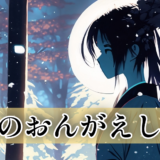ある日、おじいさんとおばあさんは、心配になって娘の部屋をのぞいてしまいました。
そこには娘ではなく、一羽の鶴が布を織っていました。
なんと、鶴は自分の羽をむしとって、布を織っていたのです。
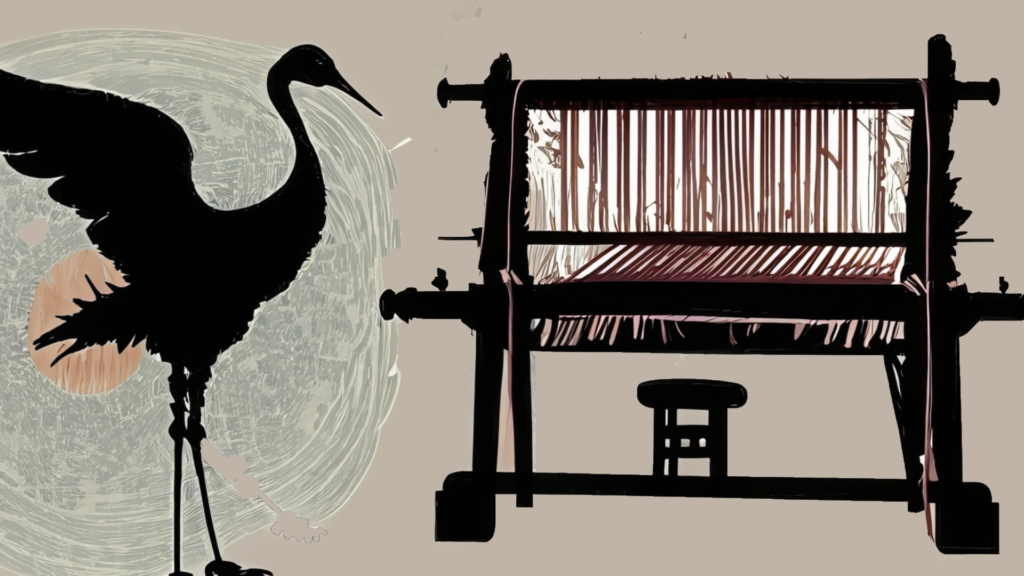
鶴はおじいさんとおばあさんに気づいて、いいました。
「おじいさま、おばあさま、黙っていてごめんなさい。」
「お前はいったい・・・?」
「全てをお話しなければなりませんね。
私は以前、おじいさんとおばあさんに助けられた鶴なのです。」
おじいさんは思い出しました。 冬に山の木を切りに行った時、
猟師の罠にかかって、弱っていた鶴をたすけたことがありました。
おじいさんは鶴を家に連れて帰り、おばあさんは鶴の怪我を手当てをしました。
「私はあの時の、おんがえしをしないと、と思い、
人間の姿になってこの家にきたのです。でも、二人に正体がばれてしまいました。
私はもう出ていかなければなりません。」
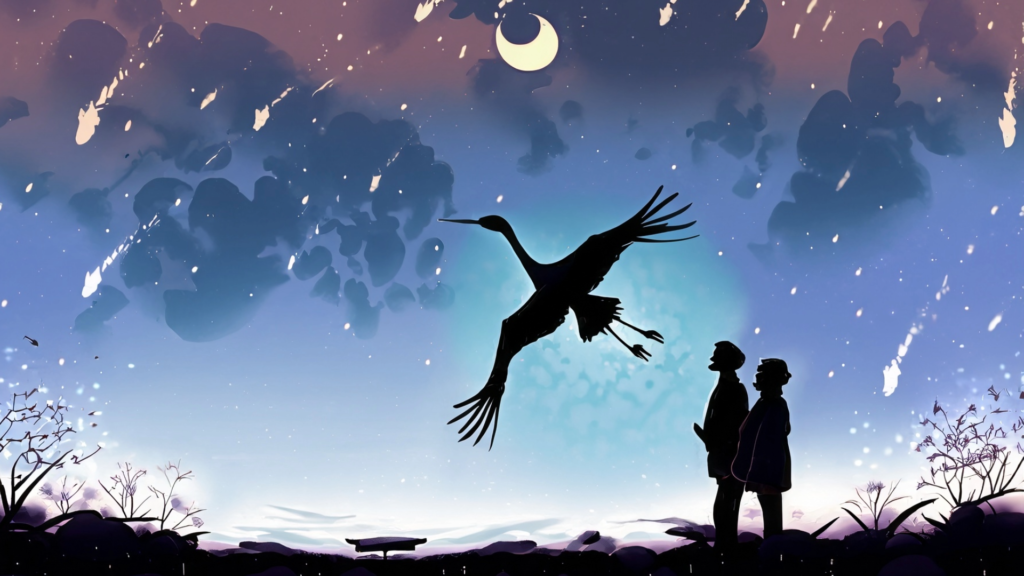
「まって、おねがいだから、いかないでおくれ。」
「おじいさま、おばあさま、ありがとう。 わたし、二人の娘になれてうれしかった。
さようなら。 いつまでもお元気で。」
鶴は悲しそうに鳴いて、空に飛んでいってしまいました。
鶴は二度と、おじいさんとおばあさんの元に戻ってくることはありませんでした。
One day, the old man and woman, becoming worried, peeked into their lady’s room.
There, instead of the lady, a crane was weaving fabric.
Surprisingly, the crane was plucking its own feathers and weaving the fabric.
The crane noticed the old man and woman and said, “I’m sorry for hiding the truth.”
“What in the world are you…?”
“I must tell you everything. I am the crane you once helped, dear grandfather and grandmother.”
The old man remembered. During winter, when he went to cut wood in the mountains, he had saved a weakened crane caught in a hunter’s trap.
He brought the crane home, and the old woman tended to its injuries.
“I felt that I must repay the favor from that time and came to this house in human form. You all have come to know my true form. I must leave now.”
“Wait, please, don’t go.”
“Grandfather, grandmother, thank you. I was happy to become your daughter. Goodbye. Please stay well always.”
The crane made a sad cry and flew into the sky, disappearing.
The crane never returned to the grandfather and grandmother’s side again.
| 一羽 (いちわ) | one (counter for birds) |
| 鶴 (つる) | crane |
| 羽 (はね) | feather |
| 黙ります(だまります)/ 黙る | to keep silent |
| お話しします(おはなしします) / お話しする | to tell |
| 全て(すべて) | all |
| 以前(いぜん) | previously, before |
| 助けます(たすけます)/ 助ける | to help |
| 山(やま) | mountain |
| 木 (き) | tree |
| 怪我(けが) | injury |
| 手当て(てあて) | treatment |
| 出て行きます (でていきます)/ 出ていく | to leave |
| 悲しい (かなしい) | sad |
| 鳴きます(なきます)/ 鳴く | to cry (for birds) |
| 空(そら) | sky |
| 二度と(にどと)〜ない | never again 〜 Not [verb] |
| 戻ります(もどります)/ 戻る | to return |
| 買い物(かいもの) | shopping |
| 報告書(ほうこくしょ) | report |
| 提出します(ていしゅつします)/ 提出する | to submit |
| ダイエットします / ダイエットする | to go on a diet |
| 宿題をします(しゅくだいをします) / 宿題をする | to do homework |
“〜しなければなりません” is a phrase in Japanese that is used to express the need for a specific action or behavior in a situation. It’s often translated as “must [verb]” in English. To form it, you remove the final “い” from the ない form of the verb.
For example, let’s take the verb “食べます” (to eat) as an example:
食べます (ます form) → 食べない (ない form) → 食べなければなりません。
This expression is commonly used to emphasize obligations or necessities. It’s a polite way of speaking and can also show respect or consideration towards the listener.

日本語を勉強しなければなりません。
I have to study Japanese.
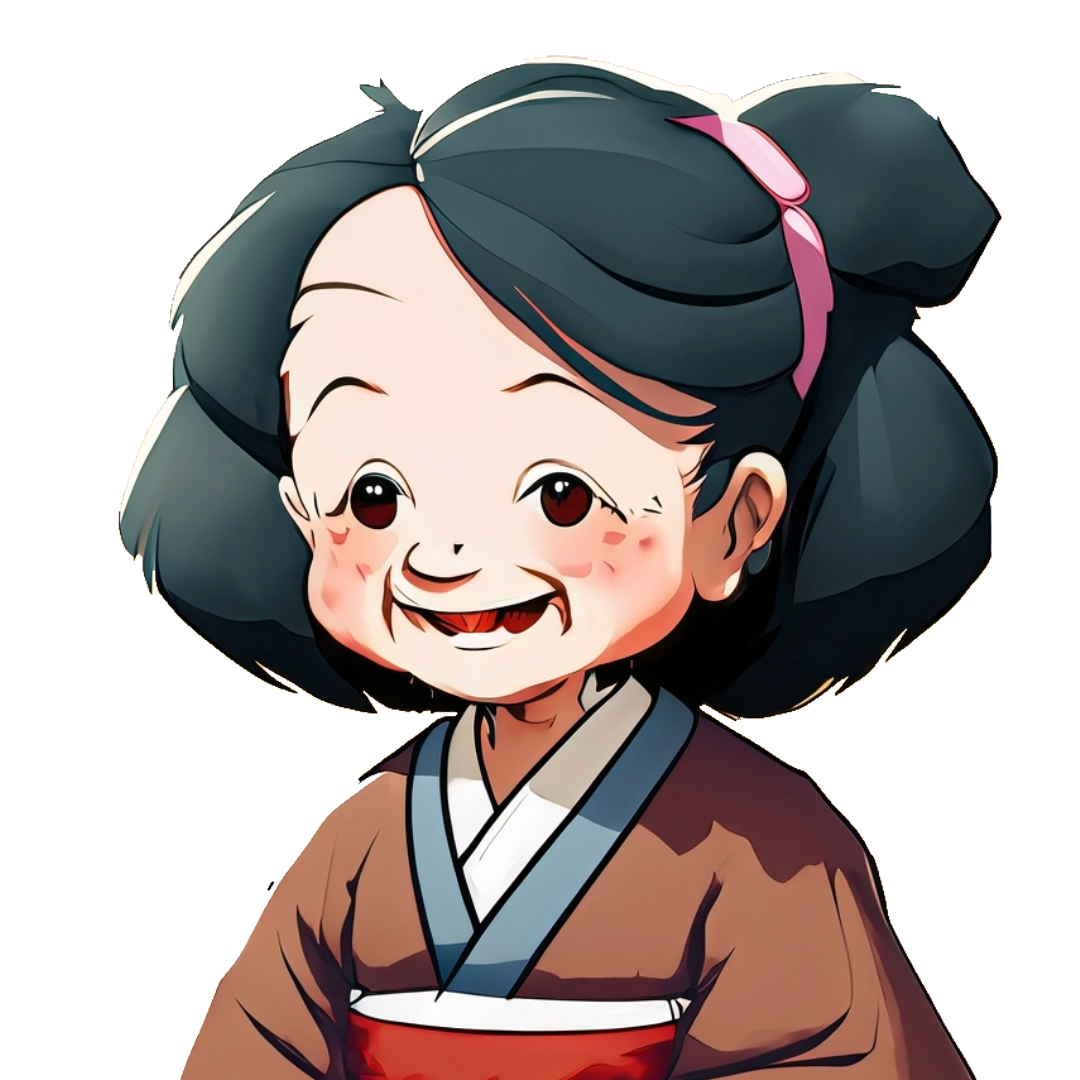
買い物にいかなければなりません。
I need to go shopping.

報告書を提出しなければなりません。
You must submit the report.
In similar expressions above, there are phrases “〜ないと” and “〜ないといけない.”
These expressions are commonly used among friends and family in relaxed situations. They are frequently heard in everyday conversations.
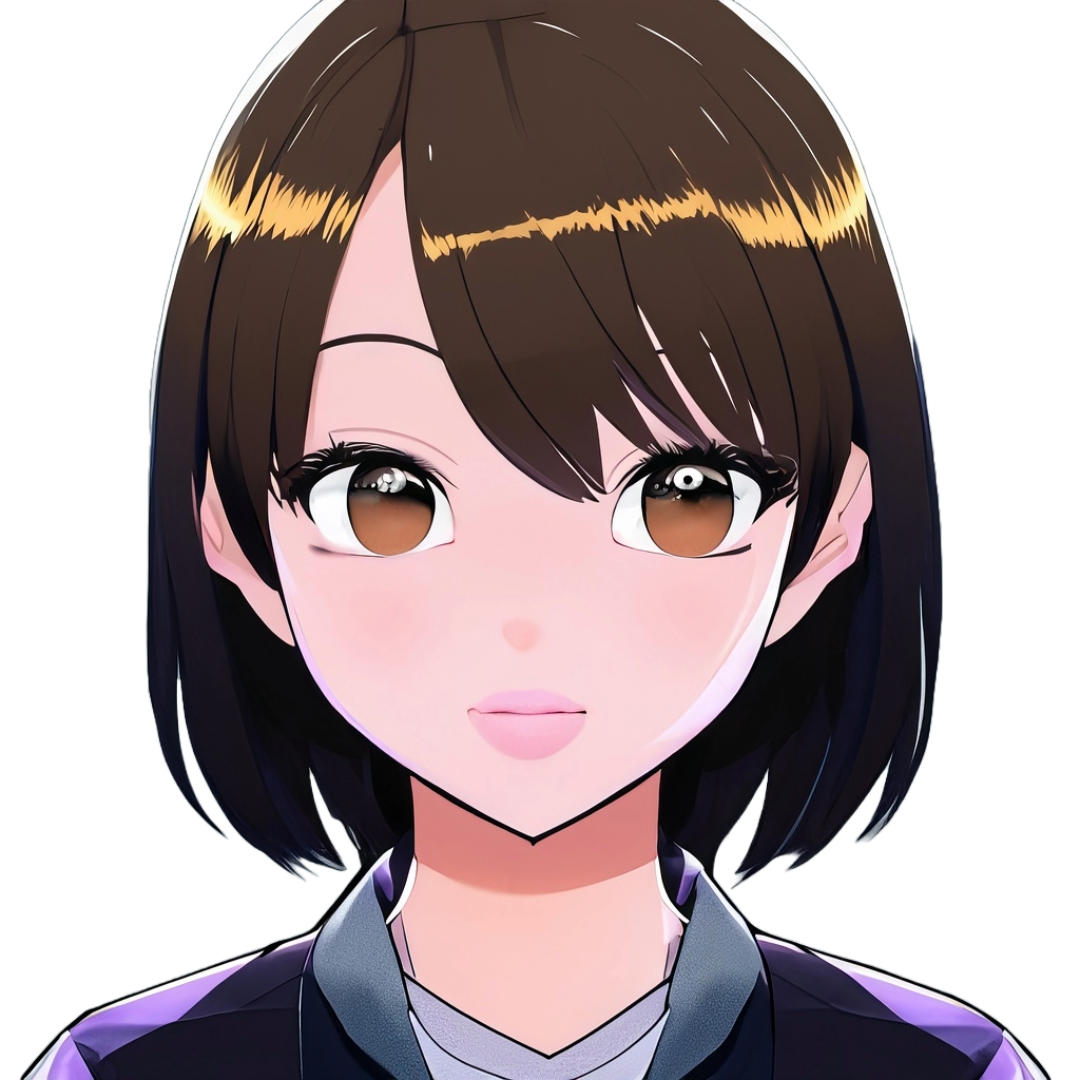
ダイエットしないと・・・。
I must to go on a diet.
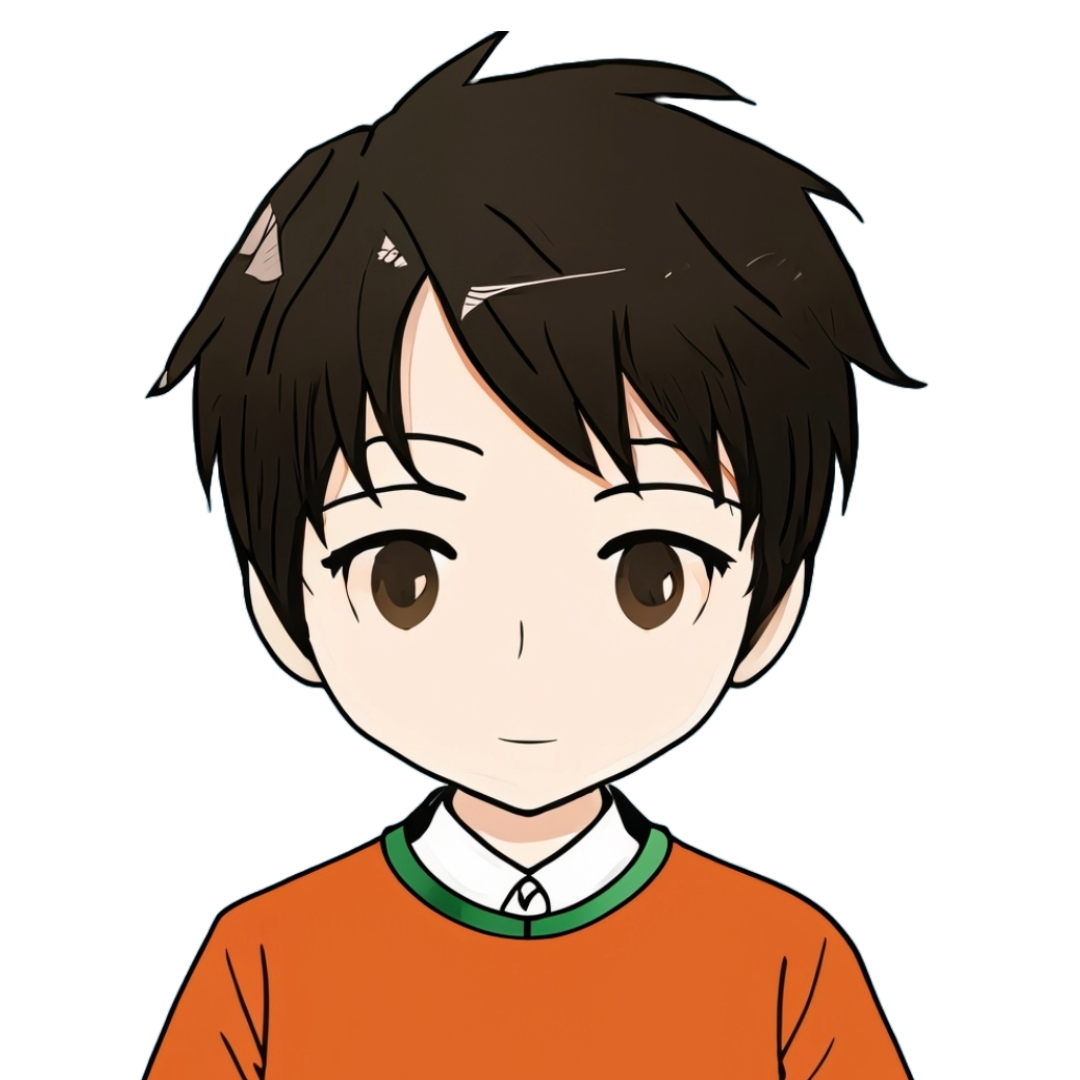
宿題をしないといけない。
I must to do homework.
This expression is commonly used to emphasize obligations or necessities. It’s a polite way of speaking and can also show respect or consideration towards the listener.

